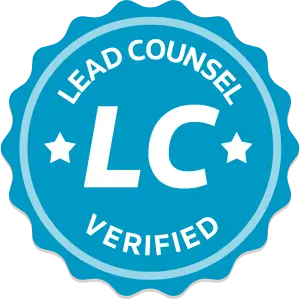




Concussions are a type of traumatic brain injury that can result from a blow to the head or body, a fall, or any other activity that causes the brain to move inside the skull. If you or a loved one has suffered a concussion due to someone else’s negligence or intentional action, you may be entitled to compensation. Our experienced personal injury attorneys can help you recover the damages you deserve.
Symptoms of a Concussion
A concussion can have a wide range of symptoms, depending on the severity of the injury. Symptoms may not always appear right away. Some common symptoms include:
- Headache or pressure in the head
- Nausea or vomiting
- Dizziness or balance problems
- Blurred vision or sensitivity to light
- Confusion or feeling “foggy”
- Memory loss or difficulty concentrating
- Mood changes, such as irritability or depression
- Sleep disturbances, such as insomnia or excessive drowsiness
It is important to seek medical attention if you experience any of these symptoms after a blow to the head or body, as untreated concussions can lead to long-term damage. A doctor can evaluate your condition and provide appropriate treatment.
Causes of Concussions
Concussions can be caused by a variety of accidents or incidents, including:
- Sports injuries: Contact sports such as football, hockey, and soccer can increase the risk of concussions due to the physical nature of the game.
- Car accidents: Accidents that involve a sudden impact or jolt to the head can also cause concussions.
- Falls: Falls are a common cause of concussions, especially in older adults.
- Violence: Physical assault or abuse can also lead to concussions.
- Military service: Soldiers who are exposed to explosive blasts or other types of combat-related trauma may also be at risk of concussions.
How are concussions treated?
There is no single treatment for concussions, as the best approach will depend on the severity of your injury and your individual symptoms. In general, doctors will recommend the following:
- Rest: You’ll need to take a break from physical and mental activity to allow your brain time to heal. This may mean taking time off work or school, avoiding screen time, and limiting other activities that require concentration.
- Medications: Over-the-counter pain relievers may help alleviate headaches and other symptoms. In some cases, doctors may prescribe medication for anxiety or depression.
- Rehabilitation: If you experience balance problems or other physical symptoms, you may need to work with a physical therapist to regain your strength and coordination.
- Follow-up care: Your doctor may recommend regular check-ups to monitor your progress and ensure that your symptoms are improving.
In addition to these initial treatments, it is also important to monitor the individual for any potential complications, such as post-concussion syndrome. This may involve follow-up appointments with a healthcare provider, as well as ongoing monitoring of symptoms and progress.
In some cases, people may experience persistent symptoms that require more aggressive treatment, such as cognitive therapy or surgery. Your doctor will work with you to determine the best course of action.
What are the long-term effects of concussions?
Most people recover fully from a concussion within a few weeks, but some may experience long-term or permanent effects. These can include:
- Post-concussion syndrome: This condition can cause persistent headaches, dizziness, and other symptoms for weeks or months after the initial injury.
- Second-impact syndrome: If you suffer a second concussion before your brain has fully healed, you may be at risk for second-impact syndrome. This condition can cause rapid brain swelling and may be life-threatening.
- Chronic traumatic encephalopathy (CTE): This condition is caused by repeated head injuries over time, such as those sustained by athletes in contact sports. CTE can cause memory loss, depression, and other cognitive problems.
It’s important to take concussions seriously and seek medical attention right away if you suspect you’ve suffered an injury. By doing so, you can minimize your risk of long-term complications.
If someone else’s negligence or intentional action caused your concussion, you may be able to file a personal injury claim to recover compensation for your medical expenses, lost wages, and pain and suffering.
Can you sue for a concussion?
If you’ve suffered a concussion as a result of someone else’s negligence, you may be entitled to compensation. This could include reimbursement for medical expenses, lost wages, and pain and suffering.
To pursue a personal injury claim for a concussion, you’ll need to demonstrate that the other party was responsible for your injury. This could involve showing that they were negligent in some way, such as by failing to provide adequate safety equipment or by driving recklessly.
Proving Negligence in a Concussion Case
To win a personal injury claim for a concussion, you must prove that the other party was negligent or acted intentionally. This means showing that:
- The other party had a duty to act reasonably to prevent your injury
- The other party breached that duty by acting unreasonably or failing to act when they should have
- The breach of duty caused your concussion
- You suffered damages as a result of your concussion
Our experienced personal injury attorneys can help gather evidence, interview witnesses, and build a strong case to prove negligence and win you the compensation you deserve.
Contact our injury attorneys today.
If you or a loved one has suffered a concussion due to someone else’s negligence or intentional action, don’t wait to seek legal help. Contact our injury lawyers today to schedule a free consultation with one of our experienced personal injury attorneys. We will fight to protect your rights and help you recover the compensation you deserve.

